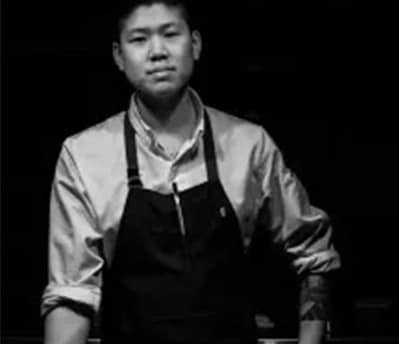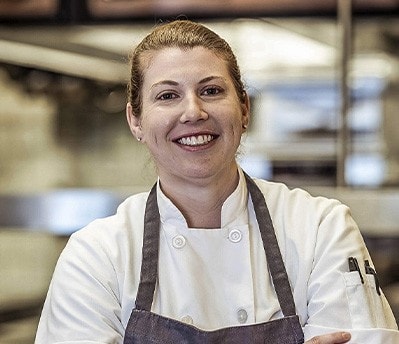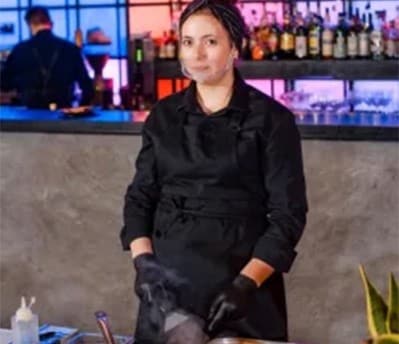Starting a journey in the foodservice industry is like following a recipe – you need the right ingredients, techniques, and someone to guide you.
As a new joiner taking their first steps in the industry, you should know that the road ahead will be demanding but equally rewarding. To succeed, you’ll need more than technical skills—you'll need passion, resilience, and a deep willingness to learn.
We’ve got some advice for turning that spark of passion into a successful and rewarding career.

Stay Curious and Never Stop Learning
Learning to be a great chef is a life-long process that continues long after you’ve left culinary school. Whether you’re working in a high-end restaurant or a relaxed bistro, each kitchen will teach you something new. Stay curious, ask questions, and always look for ways to expand your knowledge. There are opportunities to learn all around you.
As Kevin Chen, owner and chef of Red Paper Clip, says: “When you are starting out, don't focus on what you don't have. Look around for opportunities to learn and grow. Even if you start as a dishwasher, it is possible to own a restaurant one day. Watch the people working around you. If they don't want to share their knowledge, you can still pick up skills by observing them carefully and how they cook. Work at a variety of restaurants and slowly make your way up the ranks. Each place will teach you something new.”

Respect and Communication are Key
When joining a new team, it’s essential to have open communication. Discussing common goals and ways of working can help everyone achieve the same outcomes. It’s also essential to be able to open up about stress or workplace issues to your teammates. “You don’t have to do this alone,” says chef Asma Khan. “Don't just burden yourself with all the stress that is harmful for you.”
Mutual respect is at the heart of every successful kitchen. All roles have something to offer and that you can learn from. Make sure you’re building trust with your team from the start. Be curious about all the different roles and show commitment to the head chef and the crew.
Rachel Cooper, chef de cuisine at Koloman, says communication is the key from the early stages of being a kitchen leader: “Open communication is essential. Discuss common goals so everyone works towards the same outcome. It helps people to collaborate successfully. There will be unforeseen challenges, but if you want to keep growing as a chef and kitchen leader, you need to stay optimistic.”


Find a Good Mentor
A good mentor can play a crucial role in helping you grow. They can offer invaluable experience that goes beyond formal training and set you up for career longevity. To find the right mentor, set goals for what you want to learn and achieve, and look for senior chefs willing to share their knowledge. The role of your mentor will ebb and flow as you gain confidence in your skills, but there will always be a new opportunity to level up and face new challenges along the way.
According to Chef Elsu Gericke, head of education and development, SA Chefs Association, finding the right fit as a mentor is the key to growing and achieving your potential: “Young chefs need access to the knowledge and skills of more experienced workers. A mentor and mentee have a very close, personal relationship, and it's important to find the right fit. Start off by being clear about what you both want to achieve and the expectations you have of each other”.

Be Ready for the Challenge
Hospitality is demanding, and it presents new challenges every day. “Whether that's staff, suppliers, or customer complaints, finding solutions makes this work so gratifying. If you are starting out and want to make an impact in this industry, be creative and consistent,” says Ali Yazdi, owner and chef of House of Slaw. Developing the ability to multitask and make decisions in a fast-paced environment while staying calm will serve you well in the long term.

Keep Evolving
Once you feel confident in our kitchen, a new journey begins. Expanding your culinary horizons is vital to keeping your creativity and passion burning. Discover new ingredients, get inspired by different cuisines, rediscover cooking traditions and make them yours.
For example, you could organize a training session where you and your crew try the Future Menus Trends, a collection of the latest state-of-the-art techniques emerging in the culinary industry.
Always keep your culinary knowledge in motion, and your career will evolve with it. “In this profession, there is always more to discover, from products to techniques. To stay motivated, be interested in cooking as a whole, not just the area you work in every day. There is so much to learn,” states Maciej Pisarek, pastry chef at The Savoy London.
Sofiia Druzhchenko, chef de partie at Park. Art of Rest agrees: “Food is much more than just satisfying hunger. It's a work of art. At the beginning of your journey, find a chef you are comfortable working with, who can motivate you. Don't be scared to make mistakes. You can analyse and correct them. Learn, read books – not only about cooking but also art – to develop your imagination. Travel and eat a lot of different food. Expand your horizons. It's the way to succeed in the industry,” she says.
Stay Resilient and Passionate
Working in the kitchen often means working long hours and giving 110%. The truth is that success and reward take time to come. Be ready to put in the hard work, master your trade and don’t try to skip steps.
Lastly, remember the passion that drove you to start this career and keep nourishing it. As Chef Yazdi says: “Working in hospitality is demanding and challenging. Every day brings a new challenge... As you learn, give back and help others grow. That's how you build a name for yourself and develop your career.”
Use your Food to Send Your Message
Being in hospitality can be an opportunity to start a conversation on topics beyond taste and flavor. “I think that food is a conversation of love,” says Asma Khan. “That's the great thing about being in this industry, that I have used my food as a way of talking about race, about equality, about justice.” Working in the food industry is a unique way to share your heritage with the public, giving them a unique opportunity to experience a new culture with their five senses.
What’s more, you can share your recipes on social media and use them as a platform to talk about culinary themes that matter to you. For example, bringing attention to techniques like foraging, sharing creative ways to use ingredients and spotlight local produce.
Use your unique perspective, skillset and knowledge to enrich the culinary industry.
It’s Time to Tell Your Story, Chef
Becoming a chef is a journey that demands dedication, patience, and an unwavering passion for food. By mastering the basics, embracing hard work, nurturing creativity, making connections and staying grounded, you’ll be well on your way to developing a successful and fulfilling career.
Every dish you create tells a story, and as a young chef, you have the power to write a narrative that is uniquely your own.
If you want your culinary career to flourish, look at our resources to help you level up your skills.